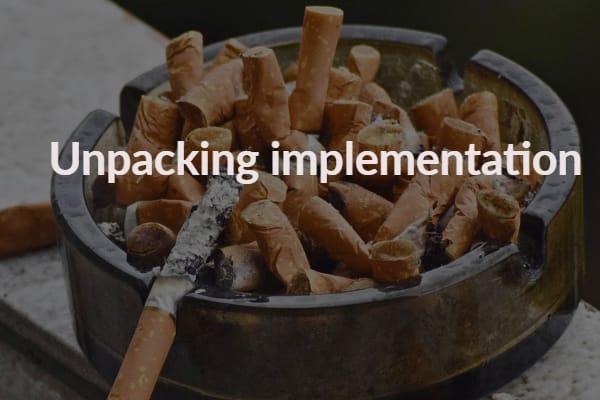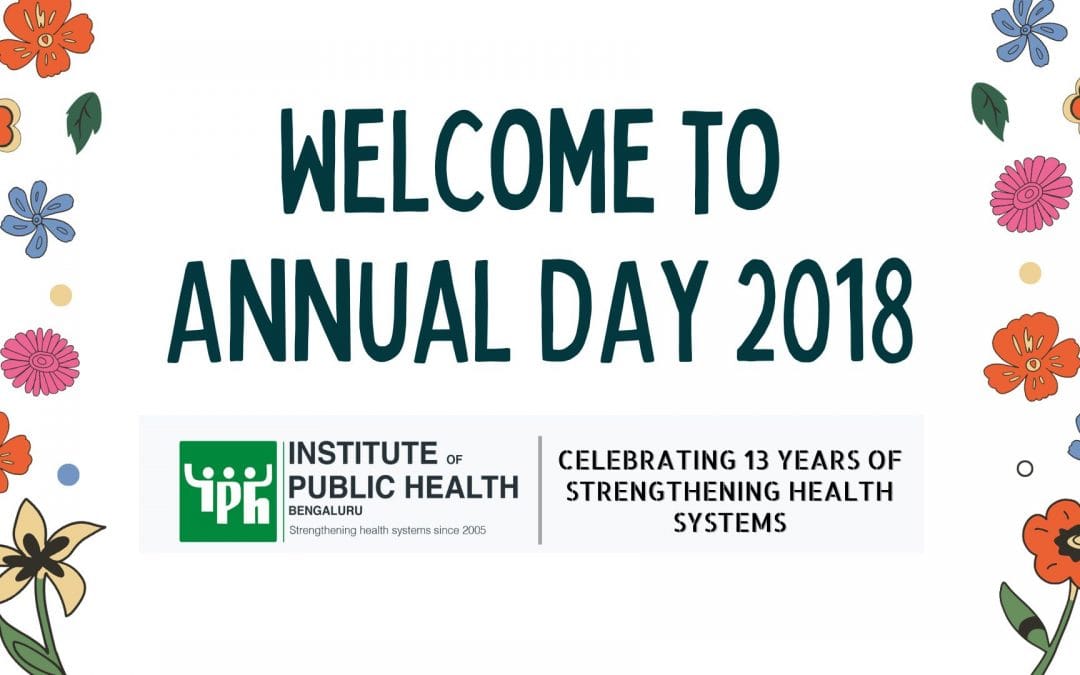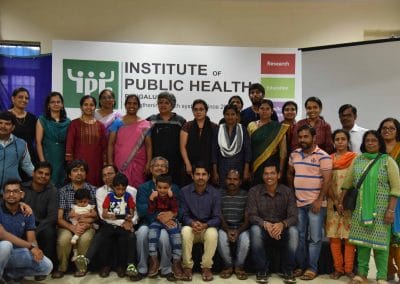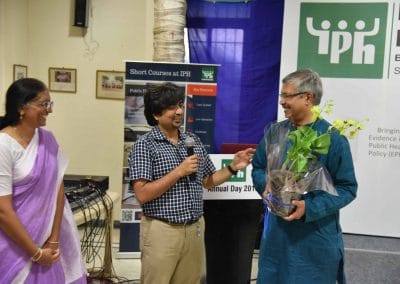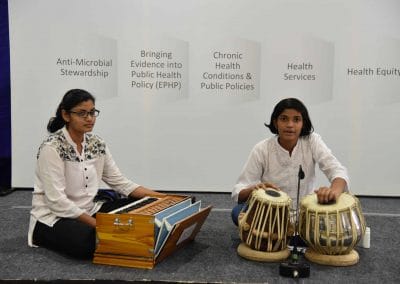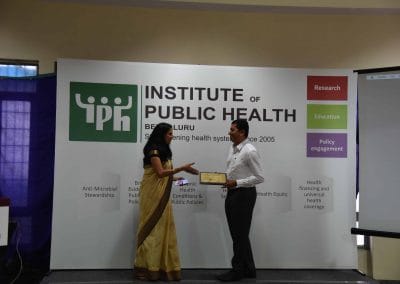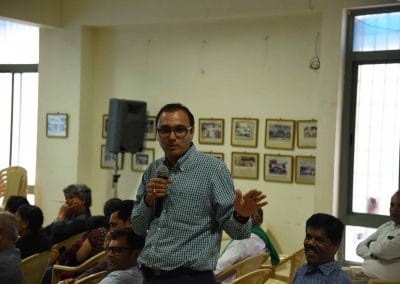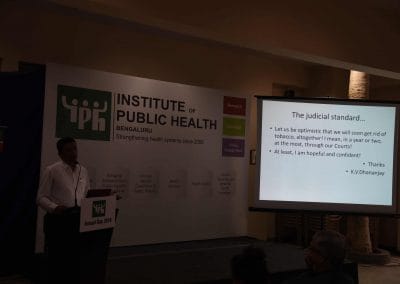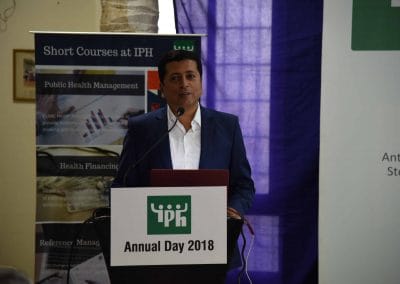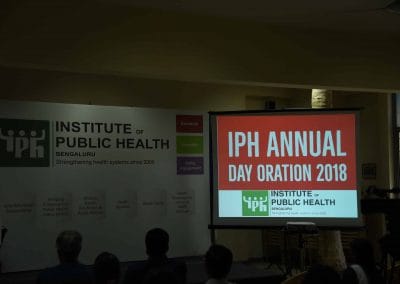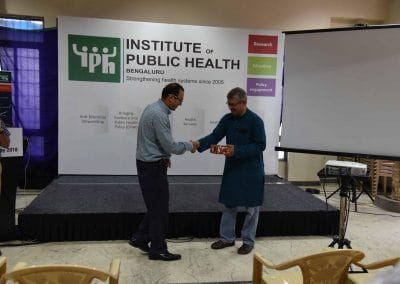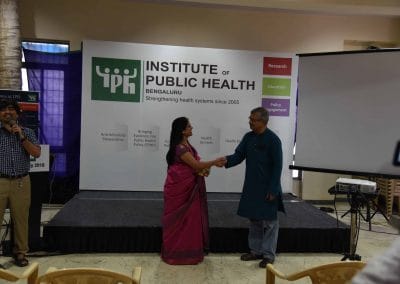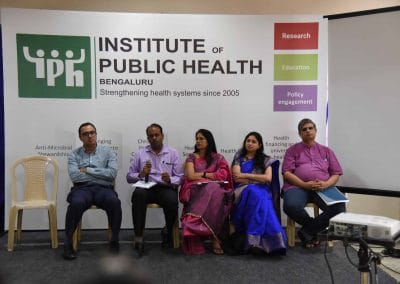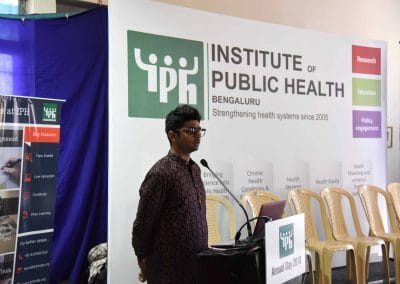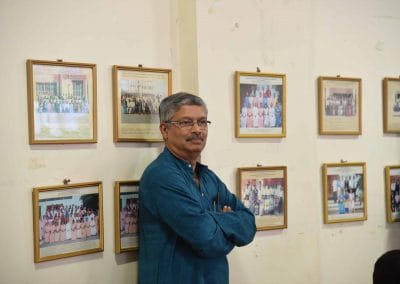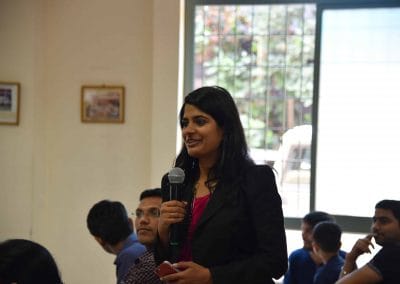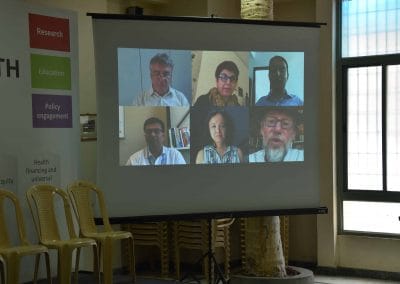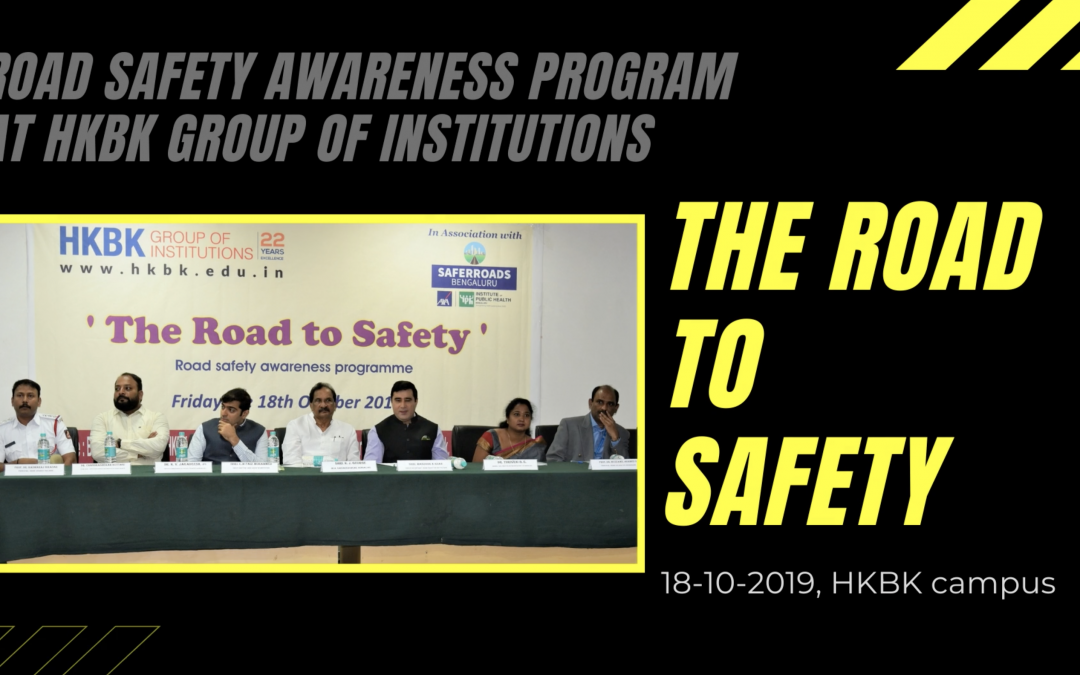
THE ROAD to SAFETY – Awareness program on Road safety
In order to create awareness among youth, especially college students, about the road safety measures and recent amendments to MV Act, Institute of Public Health, Bengaluru and HKBK Group of Institutions with the support of State Road Safety Authority had organized an awareness program titled “The Road to Safety” under the banner of the “Safer Roads Bengaluru” initiative at HKBK group of institutions on 18th October 2019.
The main intention of organizing this event at HKBK campus is that the selected campus one of the prominent institution at our selected stretch of road and has more than 3000 students studying on that campus.
Poster presentation, skits, role-play by students on road safety, quiz competition, and road safety awareness session by traffic police were organized as part of the event. Former Home Minister and present Member of Legislative Assembly Shri. K. J. George inaugurated the event. The event was presided by Shri. C. M. Faiz Mohammed, Director of HKBK Group of Institutions. Dr. Thriveni B S, public health expert and member of the BBMP NCD task force, Shri. Manzoor A. Khan, Secretary, HKBK Group of Institutions were the other guests for the event.
Winners of the competitions were rewarded ISI standard 2-wheeler helmets from the Safer Roads Bengaluru initiative. Around 600 students participated in the event.



